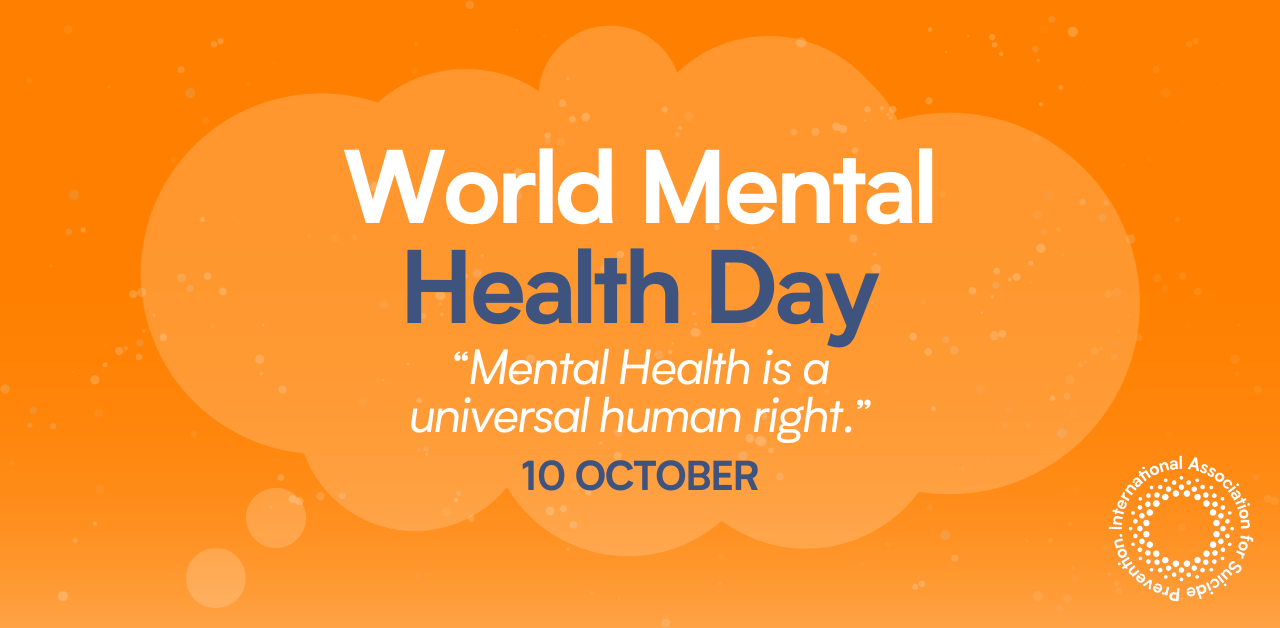“Mental health is a universal human right”. The theme for this year’s World Mental Health Day is an undeniable truth. With the World Health Organisation (WHO)’s estimates of 1 in every 8 people living with a mental disorder, it is now more important than ever before to encourage action to promote and protect mental health for everyone, everywhere. Mental health is a basic human right and we must recognise the right of everyone to receive the highest attainable standard of physical and mental health.
The principles and considerations here resonate and align with efforts to prevent suicides, reduce suicidal risk and to support those who are most vulnerable. Suicide and therefore suicide prevention is recognized as a global public health priority within the UN SDGs and suicide and suicide prevention is a key consideration in a more rights-focused approach to mental health.
The Lancet Commission on Ending Stigma and Discrimination in Mental Health, launched in 2022, highlighted some of the current issues in global mental health as inadequate government spending on mental health, wide treatment gap, stigmatising mental health policies, and inhumane treatment of people living with mental health conditions. As people with mental health conditions undergo widespread human rights violations because of stigma and discrimination, including people with lived experience is critical in shared decision-making. The inclusion and empowerment of people with lived experience of mental health problems should be at the core of every policy and decision made at the national or community level. The commission also recommends implementing mental health policies, plans and laws in line with international and regional human rights instruments.
Decriminalising suicide is a vital component in integrating mental health and suicide prevention within human rights. Criminalising suicide and suicidal behaviour increases stigma around mental health and suicide, discourages open conversations, and impedes the help-seeking process among vulnerable individuals. Decriminalisation, on the other hand, paves the way for legal and social environments that acknowledge the autonomy, agency, and dignity of individuals experiencing mental health distress. The human right to health can only be upheld through this process where vulnerable individuals have access to appropriate mental health care and support in their time of need, without the fear of legal ramifications.
This World Mental Health Day, IASP urges for;
- The decriminalisation of suicide in countries where it remains criminalised. Criminalising suicide makes it challenging for people in need to seek help and increases the stigma associated with mental illness and suicide. This leads to vulnerable individuals being punished instead of being provided with support. Decriminalisation is an important step towards achieving universal health coverage and it must be one of the priority areas of consideration of world leaders.
- The development and implementation of comprehensive national suicide prevention strategies with a focus on groups and individuals at an increased risk of suicide. In September 2023, the IASP Membership ratified a Policy Position recommending that every country should adopt, or make progress towards the adoption of a national suicide prevention strategy aimed at reducing rates of suicidal behaviour. The magnitude of mental health problems and their contribution to the global disease burden demands that equitable and accessible mental health services are available to everyone as a basic human right.
- Integration of suicide prevention services within mental health care: Suicide prevention services such as awareness raising, counselling, and postvention should be provided as an integral part of mental health care. Integrated community mental health services provide the platform for coordinated, inclusive and personalised care for those at risk of suicide. The services must be evidence-based and culturally appropriate for the right to health to be achieved by everyone.
- Engaging with lived experience at all levels: People with lived experiences of suicide bring varied insights, wisdom, and perspectives to the discussion which is critical to informing and shaping the development of best-practice approaches to suicide prevention. Lived experience must be engaged with to develop and implement mental health and suicide prevention services as well as programs and national strategies.
- Integration of suicide indicators into routine health information systems: While suicide rates and statistics are readily available in high-income countries, there is a dearth of data in low-and-middle-income countries on suicidal behaviour and risk factors. The integration of suicide indicators into health information systems can help improve mental health and suicide prevention service delivery and national monitoring efforts.




